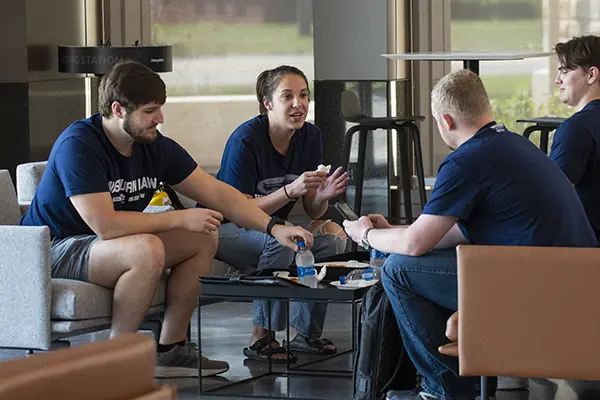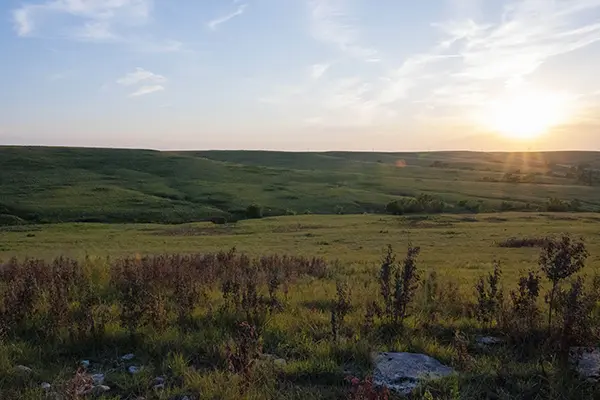


The Kansas Rural Lawyer Network is a free online discussion and networking platform for Kansas rural lawyers at all stages of their careers. Law students and young lawyers can network with more established rural lawyers, while more mature attorneys can offer insight and advice to those just beginning their careers.
The curriculum at Washburn Law is designed to provide a robust legal education tailored to the needs of rural practitioners. Our course selection includes Agricultural Law, Water Law, Environmental Law, and Estate and Family Law, among others. This diverse array of courses ensures that you are well-equipped to handle the multifaceted legal issues you will encounter in rural practice.
In addition to a comprehensive legal foundation, Washburn Law’s Rural Law curriculum emphasizes practical skills and real-world applications. You’ll have the opportunity to engage in externships and clinics that allow you to work directly with rural communities, gaining hands-on experience while making a meaningful impact. The program is designed to ensure that you graduate ready to address the legal challenges unique to rural America, from property disputes to agricultural regulations. By choosing Washburn, you’re choosing a path to serve communities in need while building a rewarding and versatile legal career.
The Rural Externship Program, funded by the Dane G. Hansen Foundation, is a cornerstone of our Rural Law Program. This initiative allows students to immerse themselves in rural practice by working in one of 26 Kansas counties covered by the foundation's service area. Participants earn six externship credits and receive a $5,000 stipend to cover living expenses. This program not only provides hands-on legal experience but also helps address the critical shortage of attorneys in rural areas.

Washburn Law offers two unique programs to help students interested in rural law get a head start on their careers. Our Law Early Admission Programs (LEAP) with regional schools enable students to earn their bachelor’s degree and juris doctorate in just six years.
Additionally, the Rural Legal Practice Initiative, in partnership with Kansas State University, encourages pre-law students to consider legal careers in rural Kansas. This program provides experiential learning opportunities, mentoring, and specialized sessions on rural legal practice, preparing students for a successful transition to law school and rural practice.
Through these initiatives, students build valuable connections with legal professionals and gain practical experience that sets them apart in the job market. By participating in these programs, you’ll be well-equipped to serve and thrive in rural communities upon graduation.
Early Admission Programs Rural Practice InitiativeThe Rural Practice Organization (RPO) at Washburn Law fosters networking and professional development for students interested in rural law. Involvement in RPO helps you build relationships with peers, gain leadership skills and deepen your understanding of legal principles relevant to rural practice.
More student orgs.Washburn Law works with students to find externship opportunities to gain hands-on experience in rural practice. These opportunities allow you to work with experienced attorneys and gain firsthand knowledge of the legal issues affecting rural communities.
Externship programWashburn Law regularly hosts speakers who specialize in rural law. These sessions provide students with insights into the unique challenges and opportunities in rural legal practice, enhancing their educational experience.